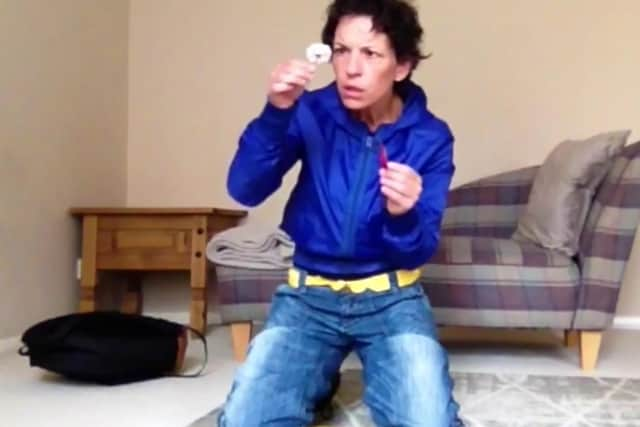The Scotsman Sessions #76: Itxaso Moreno
When Rosalind Sydney’s new version of The Secret Garden opened at the Tron Theatre in February this year, it already seemed like an almost painfully timely show, for an age when human beings are beginning to realise - perhaps too late - just how much we are part of nature, and how much we depend for our very life on natural systems that we are steadily destroying.
Sharply updated to a 21st century defined by refugee crises and environmental stress, Sydney’s version of Frances Hodgson Burnett’s much-loved children’s classic, first published in 1911, is set like the original in a country house surrounded by moorland, where there is a magical secret garden; but its orphaned heroine Mary is not a child of empire, whose parents died in a typhoid epidemic in India, but a survivor of war, who has made a fierce refugee journey to reach the home of a wealthy uncle in Scotland. In Danny Krass’s fine soundscape, the stage production began with a rumble of bombs and gunfire, and the sense of a burning city, somewhere in Syria or another recent war-zone. For this brusque, slightly androgynous Mary, superbly played by the Glasgow-based Basque actress Itxaso Moreno, the need for the healing power of nature is therefore as contemporary as it is urgent; and as Mary begins to explore the house, befriends her damaged cousin Colin, and eventually moves into the magical and healing world of the garden - which opened out gently, in designer Karen Tennant’s beautiful small-scale set - the story unfolds with all the power of Hodgson Burnett’s original novel, as well as an added contemporary edge.
Advertisement
Hide AdThe months of lockdown, though, have sharpened our perspective on this magnificent story even further, as millions have turned to their gardens - or to the public parks and garden spaces around their homes - for a sense of reconnection and hope in these strange times; and have found a profound healing power there, heightened by the unfamiliar silence of the early lockdown weeks. In this extract from the play, we see Mary arrive at her uncle’s home, now not so much a Victorian gothic nightmare (as in the original), but something more like the institutions in which young 21st refugees often find themselves; Rosalind Sydney herself plays the voice of the housekeeper, reciting the endless rules of the place.


Mary is a rebellious type, though; and here, when she throws down the rulebook in a rage shortly after it tells her never to go near the garden, she sees, falling from the binding, a couple of pressed flowers that offer a powerful hint of what is to come, when she and Colin - and their friend Dickon - finally reach the garden. In its own time, Frances Hodgson Burnett’s book was a wake-up call against emotional and social repression; a plea to a strait-laced and often hard-hearted Edwardian world to reconnect with nature, and live a richer and more fulfilled emotional life. And today, as this powerful adaptation shows, it is a wake-up call again; this time, to recognise the power of nature before it is too late, and to find ways of stopping the traffic and making time to reconnect, even when there is no global pandemic to force us to stop, to smell the roses, and to return to our own gardens - not secret perhaps, but often hidden or neglected, in the rush of everyday life.
A message from the Editor
Thank you for reading this story on our website. While I have your attention, I also have an important request to make of you.
With the coronavirus lockdown having a major impact on many of our advertisers - and consequently the revenue we receive - we are more reliant than ever on you taking out a digital subscription.
Subscribe to scotsman.com and enjoy unlimited access to Scottish news and information online and on our app. With a digital subscription, you can read more than 5 articles, see fewer ads, enjoy faster load times, and get access to exclusive newsletters and content. Visit https://www.scotsman.com/subscriptions now to sign up.
Joy Yates
Editorial Director